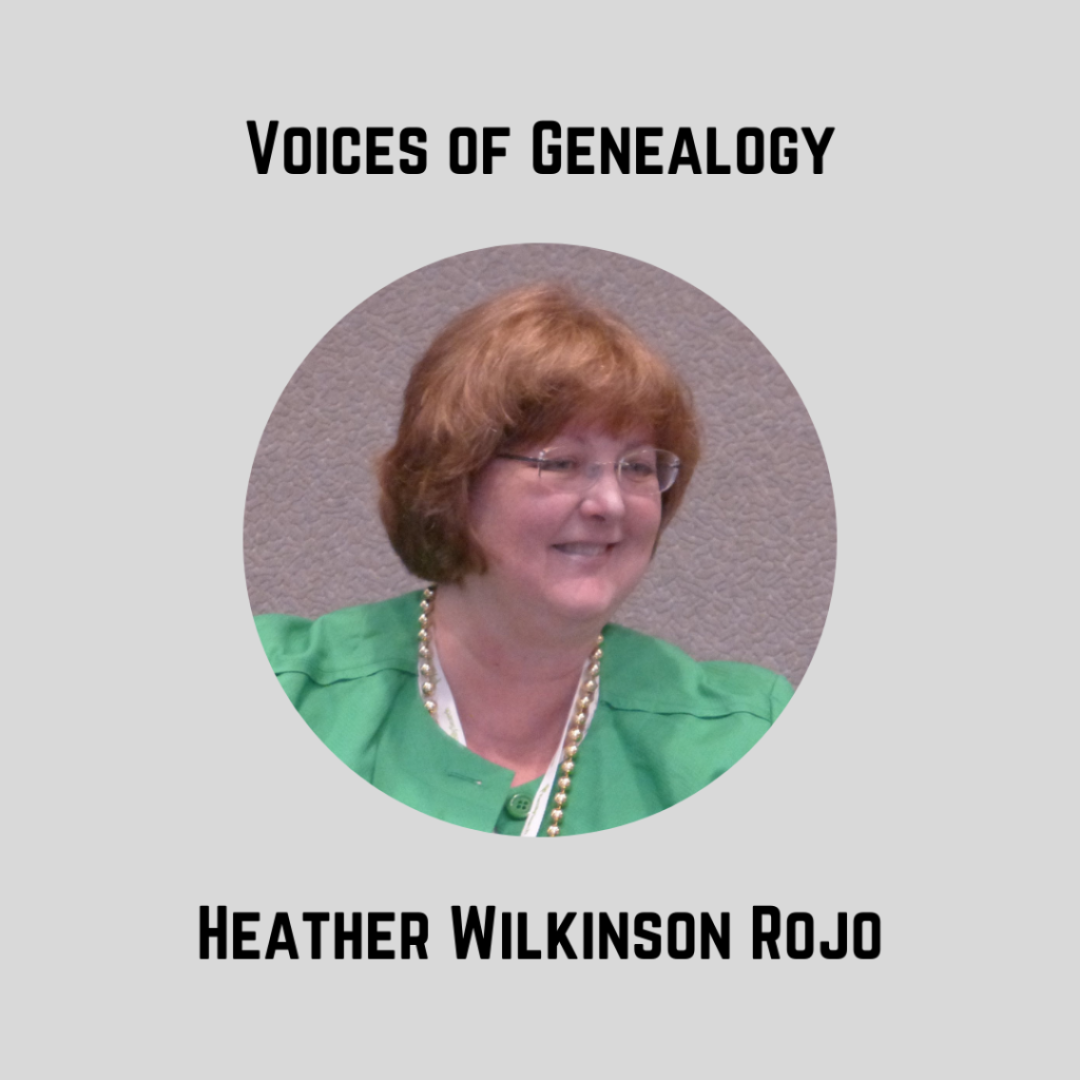
Hello there, welcome to the 3rd Voices of Genealogy Interview! This series will be a collection of interviews from people who were young (early teens to early 20s) genealogists from different decades! These interviews will highlight the stories of professional genealogists, show how the field of family history has changed over the years, and promote younger people in family history by showing that even experienced and professional genealogists started at a young age. Today’s interview comes from experienced genealogist, Heather Rojo! So if you began genealogy as a teenager or a young adult in the 2000s, 1990s, 1980s, 1970s, or beyond, please consider contacting our co-founder, Tyler, for an interview. Deadline to register for Series One of Voices of Genealogy is April 1st, future series of interviews will be started in the near future.
A Little Info about Heather…
Heather Rojo has been doing genealogy research for 45 years! She began her genealogy journey back in 1975, when her great aunt took her to visit the gravestone of her distant ancestor who fought in the Revolutionary War, for the 200th anniversary of the Battle of Lexington and Concord. Heather was 14 at the time. Since then, Heather has become a very successful genealogist and has achieved a lot in her time researching. From volunteering at the Mayflower Society, being president of the historical society in Londonderry, New Hampshire, and has been running a blog site, Nutfield Genealogy, for thirteen years. Heather is also involved in the online genealogy communities on Twitter and Instagram. She has agreed to be the third interview of Tyler’s “Voices of Genealogy” series and to talk about how the past 45 years has changed the field of genealogy.
The Interview Questions…
1. Give us a brief introduction about yourself; how old were you when you began your genealogy journey?
“I was about 14 years old when the Bicentennial celebration began in the USA. I lived near Boston, Massachusetts, so for us the 200th anniversary events began in 1975 (the anniversary of the Battles of Lexington and Concord). My great aunt told me that our ancestors lived in Lexington and participated in the battle. She confirmed this when she showed my father and me the gravestone of my 4th great grandfather, Andrew Munroe (1764 – 1836), who served as a Major in the Revolutionary War. He was too young to have participated in the battle on Lexington Green, but I was able to confirm that his two uncles Robert Munroe, and Jonas Parker (married to his aunt Lucy Munroe) were the first two men shot and killed that day.
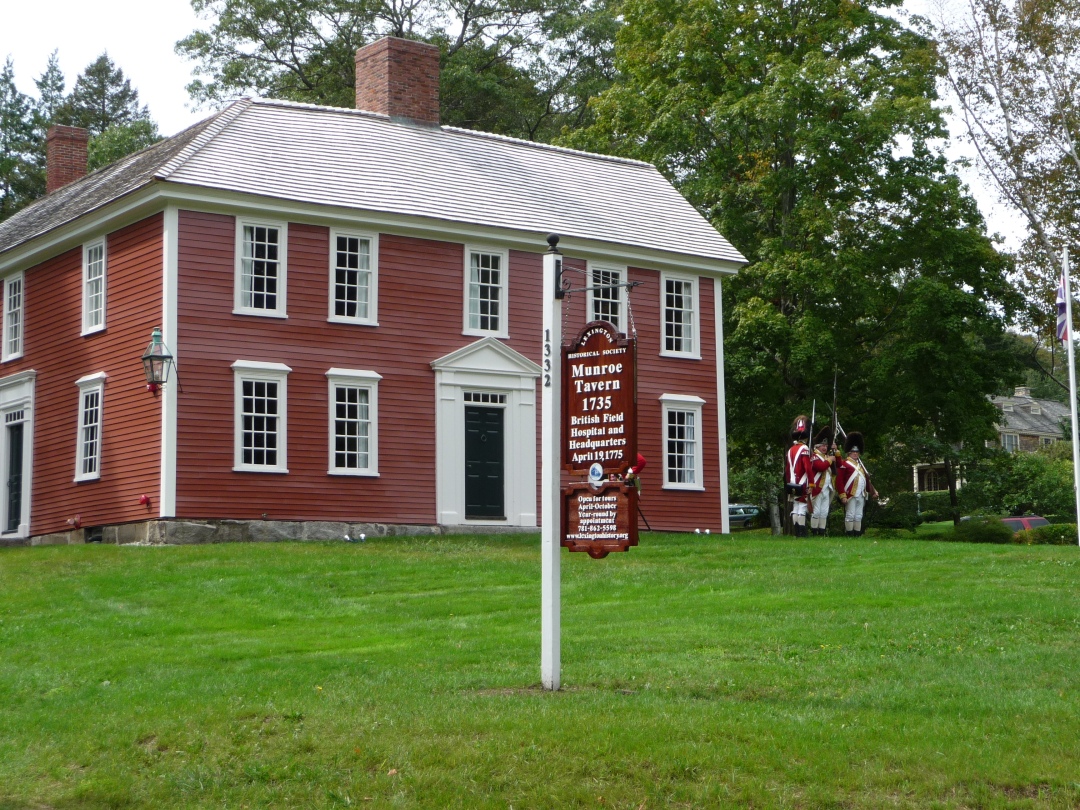
Of course, I was hooked on learning more about my family history and about our Munroe relatives at the Battle of Lexington. Around this time, the book “Roots” was published by Alex Haley. I read that story and began to think about genealogy. It was also the year my grandmother came to live with us. She had come to the USA via Ellis Island in 1915, when she was a teen-age girl. I spent a lot of time with her, writing down her stories.
The following year I took my first college night class in genealogy. I was the youngest student in the class by many, many years. Most of the other students were retired people. We took several field trips to the archives in Boston, to an LDS family history center, and to the American Antiquarian Society in Worcester, Massachusetts. We learned to take notes on charts and 3”x5” cards, and the latest technology in those days was micro-film and micro-fiche.
I was too young to drive, but the following summer, I rode my bike every week to the American Antiquarian Society. In those days, it was a profoundly serious, solemn place for research. You had to earn a researcher card by proving your research was for a college degree thesis, book research, or some other important project. Men had to wear suits. I never saw a woman or a young person there in the research room. There was a panel of staff who interviewed me about my family history research, and I was surprised when they gave me a research card! I took it very seriously and became a regular patron. That summer I was able to research my Munroe family back to a Scots Prisoner of War from the battle of Worcester in 1651, and many other branches of my family back to the 1620s and 1630s in England.”
2. How did you get into genealogy? Did you do it by yourself or did someone help you?
“As you can see, I had to help myself with genealogy classes and riding my bicycle to research at local libraries and archives. My mother was extremely interested in our family history, too, and she would drive me to Boston or around to cemeteries. I went to university in Boston, which was great because the vital records, state archives, and the New England Historic Genealogical Society were close to me. I did not have money to join the NEHGS, but I would go on free days to take advantage.
3. What was it like being a young genealogist in the 1970s? Did you meet anyone your age at the time who also was interested in family history research?
“I never met anyone my age doing family history research when I was young. During my undergraduate years I did a project on one branch of my family for a history class, and that was the closest I ever came to meeting other people interested in genealogy. I’m sad to say that I was married right after graduation and became busy in my new career as a middle school teacher. I set aside my research for many years. It wasn’t until I had a daughter and she started asking questions about our family, and that got me started back into my research.”
4. How do you think genealogy research has changed since you started back in 1975?
“Sometime in the early 1990s and we bought our first home computer software (Family Tree Maker). It was so easy to use the computer database instead of hundreds and hundreds of file cards and paper charts. If you ever started with paper, you’ll know how wonderful it is to switch over to a computer!
In the 1970s, we did all our correspondence by mail through the post office. I sent out lots of letters to older relatives asking them to answer my questions about what they knew about our family. I had to correspond with distant town clerks, historical societies, and churches all by “snail mail”. It was always fun, after weeks of waiting, to get an envelope back in the mailbox. Much more fun than getting an email! But so very, very, very slow! Email, Facebook, and the old genealogy forums online changed this so much.”
5. What were the challenges of searching for family back then? How did you do your research with limited technical or less access to information?
“In the 1970s we had to do everything by hand, and it took hours to look up things in card catalogs or in indexes. Now we can search by computer in a few seconds. I remember reading lots of genealogical journals and articles to get ideas on new places to research. You would laugh at the tedious ways we had to search censuses and other resources. It was complex and time consuming.
Fortunately, most of my family roots were all nearby in Massachusetts so as a young genealogist I could visit towns to research in libraries, historical societies, cemeteries, and churches. In the early days of my research, I could not research places outside of Massachusetts or in Europe (Scotland, England, The Netherlands, etc.) or in Canada (I have some ancestors who lived in Nova Scotia) because of my age and income. That research could sometimes be done at an LDS family history center, but it was tedious scrolling through microfilm that had to be ordered by mail ahead of time, often with no results. But over the past 45 years I have been lucky enough to do genealogy research all over the United States (including a trip to Salt Lake City and to Hawaii), Nova Scotia, England, Spain and The Netherlands).”
6. Tell us a bit more about your work as a genealogist.
“Over all these years I never became a professional genealogist, but I did take a few clients on to see if I liked that kind of career. I decided that I preferred volunteering my time on local history and local genealogies. I was the president of our Historical Society in Londonderry, New Hampshire for a short time, but for almost ten years I have been answering the genealogy queries sent to Londonderry (mostly about the original Scots Irish families who came here starting in 1719).
I have volunteered for many positions at the Mayflower Society – secretary, captain, and a term as the Governor of the New Hampshire Mayflower Society. I have enjoyed being a member of the Mayflower Society and still volunteer on many committees in my state. I have found that I have ten Mayflower ancestors, and having their lineages accepted by the Mayflower Society has been one of my biggest genealogy thrills. Proving fourteen or fifteen generations back to a Mayflower passenger with the Society’s exacting standards is not easy!
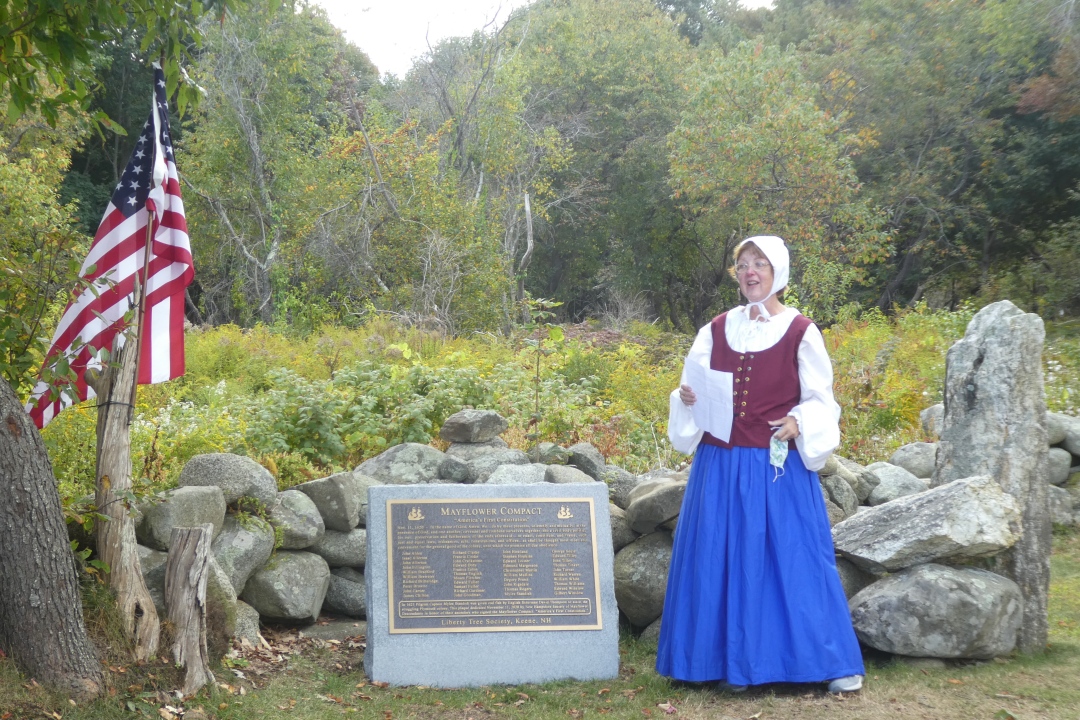
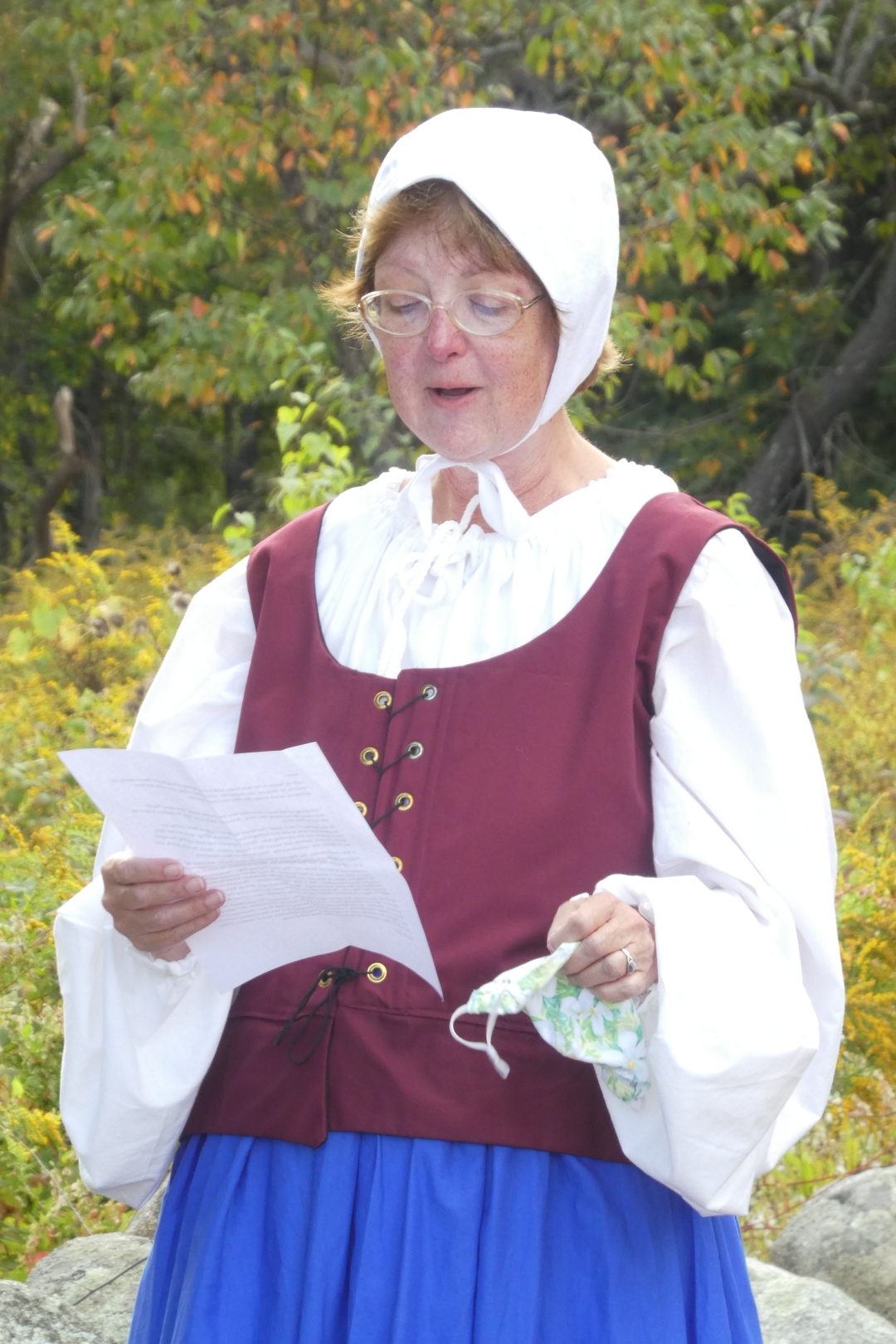
Many genealogists know me from reading my blog, Nutfield Genealogy, which is thirteen years old now. I have also spoken at many genealogy conferences such as the Southern California Genealogical Society’s Jamboree, RootsTech, and the New England Regional Genealogy Conference as well as for local events all over New Hampshire and Massachusetts.”
Conclusion
In conclusion, Heather’s story as a genealogist is definitely an interesting insight into how genealogy has changed over the decades. As someone who currently runs two blogs and has recently decided to volunteer at the local cemetery to help out with burial records, I really admire and respect Heather’s work with her blog, Nutfield Genealogy, and the volunteering work she has done for various historical societies, such as the Mayflower Society. I hope to be as experienced in the world of genealogy as Heather is. I would like to give a big thanks to Heather for deciding to partake in my new interview series!
If you wish to follow Heather and her work…
Website: Nutfield Genealogy
Twitter: @HeatherRojo
Instagram: @heatherrojo
Again – if you started researching family history genealogy as a teenager or young adult (early 20s) in a previous decade. Please consider contacting Tyler for an interview before the end of the month to be on series one of Voices of Genealogy.
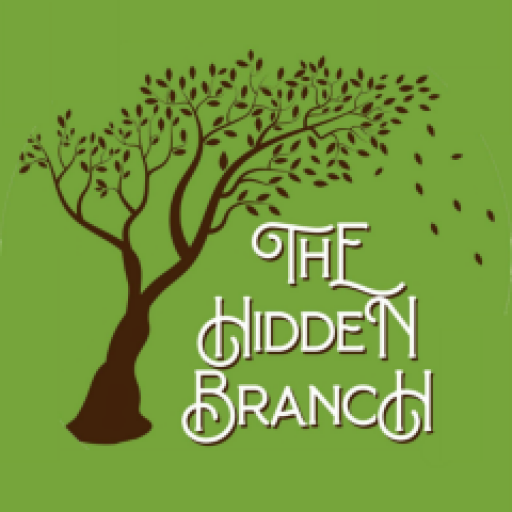
Great interview Heather. Yes I remember joining a genealogy class in a local library as a young mother and they called me the baby of the group but welcomed my interest and offered me much help as I researched.
This is a great series, fantastic idea!
Thank you so much!